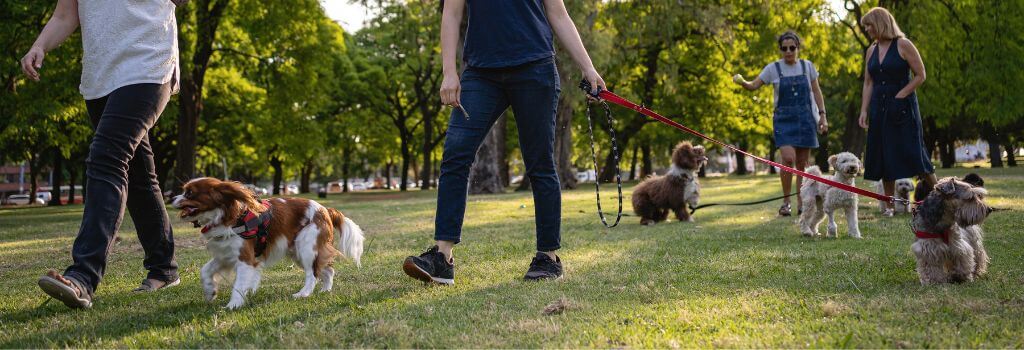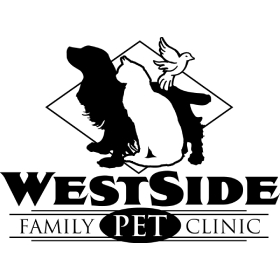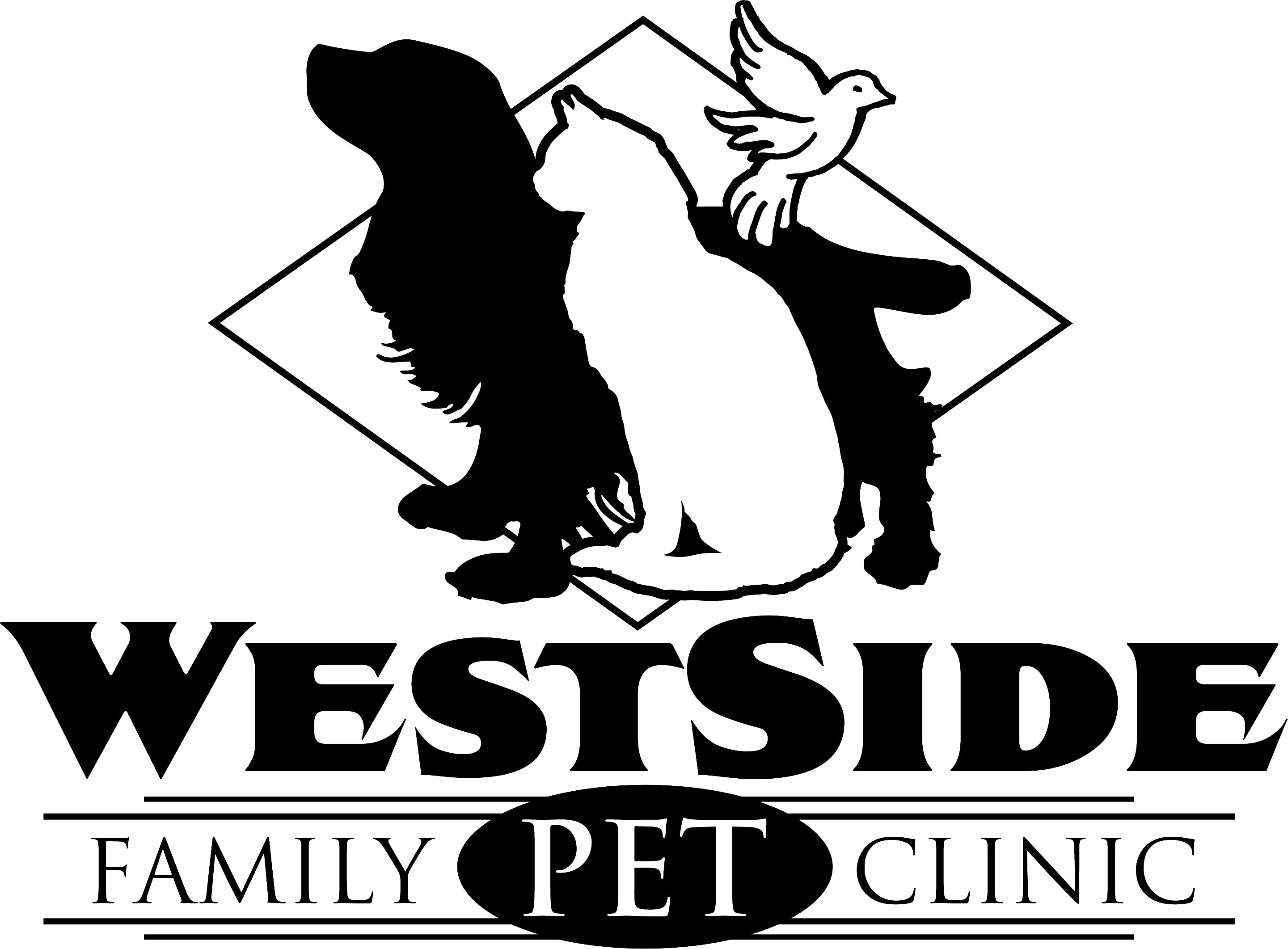If you’re a dog parent, you’ve probably heard of the common “kennel cough,” but did you know that dogs can also catch a type of influenza? Just like in people, canine influenza virus (CIV) is a highly contagious respiratory virus that spreads easily in places where dogs congregate, like parks, doggie daycare, and grooming facilities. Understanding what CIV is, how it spreads, and how to keep your dog safe can help you make the best choices for your pup's health.
Breaking Down Canine Influenza Virus (CIV)
Canine influenza virus (CIV) is a respiratory infection in dogs, caused by two main types of influenza A virus — H3N8 and H3N2. Unlike human influenza, which primarily affects people and is often confused with the “stomach flu,” CIV is host-specific and only infects dogs. So, if your pup contracts CIV, there’s no need to worry about it spreading to you or other pets in the home. However, much like human flu, CIV can bring uncomfortable symptoms such as coughing, a runny nose, fever, and lethargy. And when dogs are in close contact, the virus can spread quickly, making environments like shelters, boarding facilities, and dog parks common hotspots for transmission.
Most cases of CIV are mild, and symptoms can last anywhere from 10 to 30 days. While the majority of dogs recover well, about 10-20% of cases can progress to pneumonia, and severe cases with secondary bacterial infections can be life-threatening. Fortunately, the mortality rate is low, generally less than 2%, but staying vigilant and seeking veterinary care when needed can help prevent complications.

CIV spreads through various routes, primarily via aerosols—tiny droplets released when dogs cough, sneeze, or bark. It can also be transmitted through direct contact, like nose-to-nose greetings, or by contact with contaminated surfaces such as water bowls or leashes. Dogs that frequently visit high-traffic canine environments, including grooming facilities, doggie daycares, pet stores, and veterinary clinics, are at the highest risk of exposure.
If your dog spends time in any of these places, understanding CIV symptoms and taking preventive measures is key to keeping your furry friend safe and healthy.
Veterinary Fun Fact: While human influenza is often mistaken for the “stomach flu” with symptoms like vomiting and diarrhea, the canine influenza virus only impacts the respiratory system.
Vaccination Options for CIV
Vaccines are now available to protect dogs from canine influenza, and recent advancements have made these vaccines even more effective. The latest vaccine, Nobivac® NXT flu, uses RNA particle technology, which stimulates a robust immune response without live organisms or adjuvants. This technology also extends the duration of immunity, reducing the number of boosters needed compared to older vaccines.
It’s important to note that while the CIV vaccine doesn’t prevent infection entirely, it can significantly reduce the severity of symptoms if a vaccinated dog is exposed. For dogs who spend time in high-risk environments, vaccination is strongly recommended to provide added protection.
Symptoms and Diagnosis of CIV
After exposure, the clinical signs of CIV usually appear within two to five days. Many cases are mild and may not even be noticeable to dog owners, as symptoms can be as minimal as a light cough. However, in more serious cases, dogs can exhibit signs such as:
- Persistent coughing
- Runny nose
- Sneezing
- Eye discharge
- Fever
- Lethargy
While most cases are self-limiting, meaning they resolve on their own, a small percentage (10-20%) of cases may develop into more serious issues like pneumonia or secondary infections. Young puppies and older dogs, whose immune systems may be weaker, are especially vulnerable to more severe effects of the virus. If your dog has any of these symptoms, it’s best to schedule a visit with your veterinarian. They may recommend specific tests, such as a PCR test, to confirm the presence of CIV and rule out other respiratory infections.
Canine Influenza vs. “Kennel Cough”: What’s the Difference?
One of the challenges with canine influenza is that its symptoms can mimic other common respiratory conditions, particularly “kennel cough.” While CIV is caused by a virus, kennel cough is typically due to the bacterium Bordetella bronchiseptica. Both illnesses can cause coughing and other respiratory symptoms, but kennel cough often has a more distinct, honking cough.
In high-population dog facilities, most organizations require the kennel cough vaccine, which provides reliable protection against Bordetella. However, for dogs at risk of CIV, adding an influenza vaccine may provide added protection against this viral infection. If your dog has a persistent cough or other respiratory symptoms, a visit to your veterinarian is recommended to determine the cause and the best course of action.

What to Do If Your Dog Has CIV
If your dog shows symptoms of CIV, the first step is to get them checked by a veterinarian. Blood tests can help support the diagnosis, and PCR testing is available to detect the virus directly. While there is no cure for CIV, the good news is that it is typically self-limiting and can be managed with supportive care. Here’s how:
- Hydration: Keeping your dog hydrated helps their body fight the virus.
- Rest: Minimize activity to allow your dog’s immune system to recover.
- Preventing Secondary Infections: Secondary bacterial infections can make CIV more serious. Your vet may recommend antibiotics or other supportive therapies if there’s a concern.
Fortunately, with early intervention, most dogs recover well. However, if your dog has a more severe case or develops pneumonia, they may need more intensive care. Although rare, severe cases can be life-threatening, particularly if secondary infections develop.
Protecting Your Dog from Canine Influenza Virus
Canine influenza virus is highly contagious but manageable with proper awareness and preventive measures. If your dog is at higher risk due to regular visits to boarding or grooming facilities, dog parks, or doggie daycare, talk with your veterinarian about the CIV vaccine and steps to reduce exposure. By staying informed and proactive, you can help keep your pup healthy, happy, and ready to enjoy all the adventures they love.
If you have questions and you'd like to reach out to us, you can call us directly at (402) 383-1850, or you can email us at [email protected]. Don't forget to follow us on social media Facebook, Instagram.




